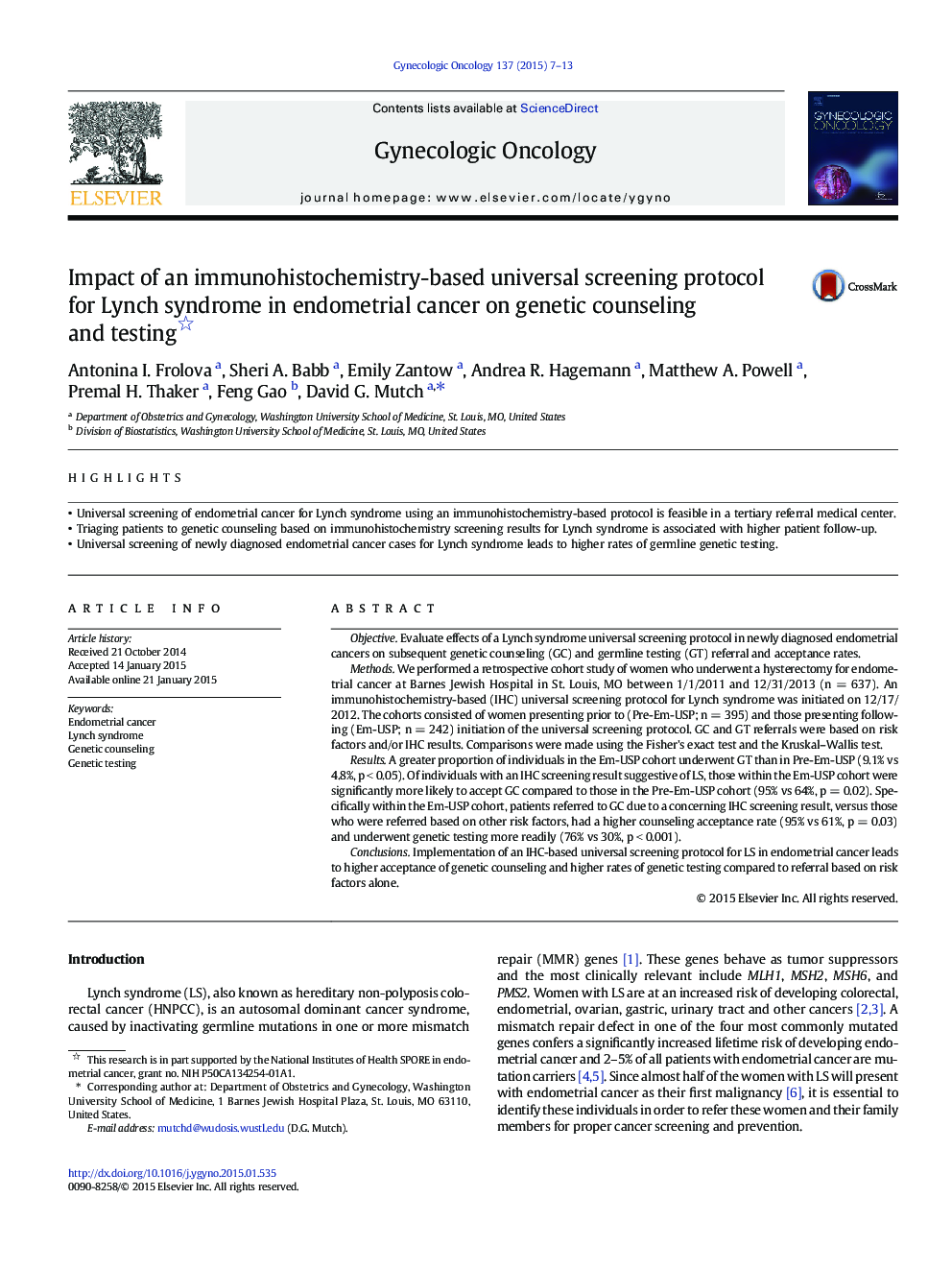| Article ID | Journal | Published Year | Pages | File Type |
|---|---|---|---|---|
| 6183153 | Gynecologic Oncology | 2015 | 7 Pages |
â¢Universal screening of endometrial cancer for Lynch syndrome using an immunohistochemistry-based protocol is feasible in a tertiary referral medical center.â¢Triaging patients to genetic counseling based on immunohistochemistry screening results for Lynch syndrome is associated with higher patient follow-up.â¢Universal screening of newly diagnosed endometrial cancer cases for Lynch syndrome leads to higher rates of germline genetic testing.
ObjectiveEvaluate effects of a Lynch syndrome universal screening protocol in newly diagnosed endometrial cancers on subsequent genetic counseling (GC) and germline testing (GT) referral and acceptance rates.MethodsWe performed a retrospective cohort study of women who underwent a hysterectomy for endometrial cancer at Barnes Jewish Hospital in St. Louis, MO between 1/1/2011 and 12/31/2013 (n = 637). An immunohistochemistry-based (IHC) universal screening protocol for Lynch syndrome was initiated on 12/17/2012. The cohorts consisted of women presenting prior to (Pre-Em-USP; n = 395) and those presenting following (Em-USP; n = 242) initiation of the universal screening protocol. GC and GT referrals were based on risk factors and/or IHC results. Comparisons were made using the Fisher's exact test and the Kruskal-Wallis test.ResultsA greater proportion of individuals in the Em-USP cohort underwent GT than in Pre-Em-USP (9.1% vs 4.8%, p < 0.05). Of individuals with an IHC screening result suggestive of LS, those within the Em-USP cohort were significantly more likely to accept GC compared to those in the Pre-Em-USP cohort (95% vs 64%, p = 0.02). Specifically within the Em-USP cohort, patients referred to GC due to a concerning IHC screening result, versus those who were referred based on other risk factors, had a higher counseling acceptance rate (95% vs 61%, p = 0.03) and underwent genetic testing more readily (76% vs 30%, p < 0.001).ConclusionsImplementation of an IHC-based universal screening protocol for LS in endometrial cancer leads to higher acceptance of genetic counseling and higher rates of genetic testing compared to referral based on risk factors alone.
